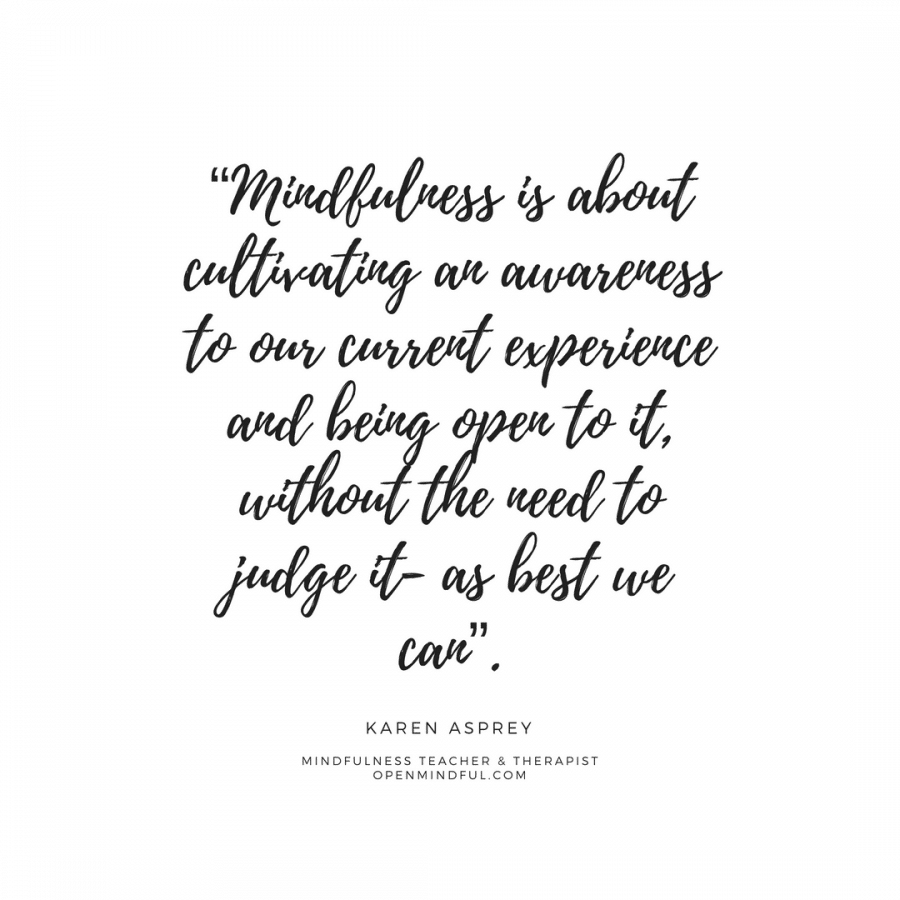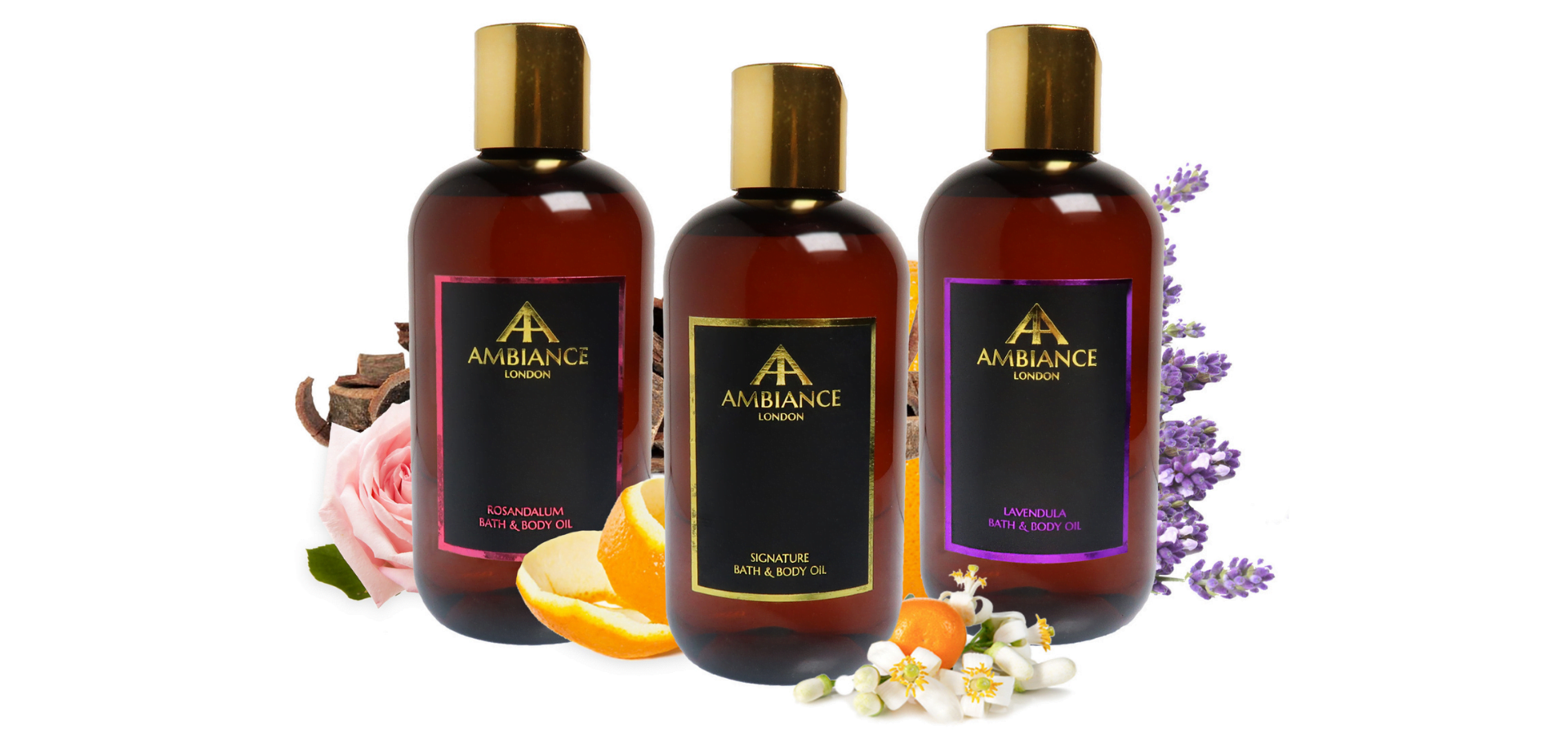
How Mindfulness Improves Wellbeing & Health:
Interview with Mindfulness Teacher & Therapist Karen Asprey
A prominent wellbeing buzzword, the notion of mindfulness seems to be everywhere. Lifestyle brands are awash with mindfulness talk and we are often sold books and magazines on this topic. However, I’m not sure I could have told you its origins or full definition.
Wanting to delve a little further, we spoke to mindfulness teacher and therapist Karen Asprey, who explains:
“Mindfulness is about cultivating an awareness to our current experience and being open to it, without the need to judge it- as best we can”.
With us all leading busy lives, this is such a powerful and important concept. I spoke to Karen, asking her for further insight. Read on to discover more and immerse yourself in all things mindfulness…
Mindfulness is so popular at the moment- but what does the term actually mean?
Mindfulness has been around for 1000s of years. It was introduced to Westernised modern medicine by psychologist Jon Kabat Zinn in the late 1970’s. It was used, very successfully, to help people with chronic conditions who had been told the medical community could do no more to alleviate their symptoms.
Mindfulness is not about feeling calm or positive all the time. We can very often feel positive and pretty calm when life is middling to ok and definitely when it’s great – and we can find ourselves hoping that things won’t go wrong.
Because of the imperfect nature of life and us as human beings, stuff ‘falls out the bottom of it’ and we fall over! This is when it’s really hard to be positive and we can find ourselves fighting with our thoughts and feelings – not wanting them to be present. This sadly just ‘fixes’ them in place.

Mindfulness is about coping rather than hoping because pain (emotional and physical) in life is inevitable – but suffering can be optional. Because mindfulness approaches are underpinned by rigorous scientific testing it’s an area of modern medicine we can engage with, with trust.
Life is sometimes so busy – juggling to get through one thing to the next – ticking things off a list. It can almost feel as though we’re speeding our life up! Mindfulness is for those people who want to slow down and smell the roses – but don’t know how.
Mindfulness meditation creates changes in the brain – as little as 100 minutes of practise can be picked up on a brain scan. The overall effect of these changes in various parts of the brain leads to lots and lots of mental and physical benefits that support our wellbeing:
Mindfulness Improves Well-being
- Helps you to notice the pleasures in life – so often we are so caught in our heads that we don’t notice them
- We are better able to deal with adversity
- We get less caught up with regrets of the past and anxieties about the future
- It improves our relationships – with everyone – loved ones to strangers
- We form deeper connections to others – a very necessary thing if we want to stay happy and well
Mindfulness Improves Physical Health
- Relieves stress
- Treats heart disease
- Lowers blood pressure
- Reduces chronic pain
- Improves sleep
- Alleviates gastrointestinal difficulties
- Improves the immune system
Mindfulness Improves Mental Health
- Depression
- Anxiety
- Substance abuse
- Eating disorders
- Couples’ conflicts
- Obsessive-compulsive disorder
Ultimately, becoming mindful allows us to live a better and happier life.
Why did you decide to become a mindfulness teacher and therapist?
I started out by doing a psychology degree in the late 90s and I think a big part of being interested in the subject was wanting to understand how my own mind worked.
I first came across mindfulness about 10 years ago and, as much as I had studied psychology, hypnosis and therapeutic approaches, mindfulness was something that made a difference to how I lived and experienced my life. Becoming mindful is an experience – not primarily academic knowledge. You would probably learn more about actually being mindful by doing 4 or 5 ten minute meditations than reading 4 or 5 books!
I was what most people would call a worrier. I spent lots of time feeling anxious about things that might happen (99% of them didn’t! This sort of thinking is something most of us can probably recognise). Mindfulness helps us to cultivate a new relationship with our thoughts.
I qualified as a Mindfulness Teacher in 2014 and teach Mindfulness-based Cognitive Therapy. I love teaching this and watching people become involved and have insight into how this practice might have a very important role towards their wellbeing and happiness. I’m not being horribly earnest about it! For me, it truly is a privilege to work in this field.
Find out more about Karen’s work over at NISAD – National Institutes for Stress, Anxiety and Depression.
About Karen Asprey, BSc Psych (Hons) HPD DipCHyp RCMT
Karen is a registered Clinical Mindfulness Teacher, Mindfulness-based therapist and qualified Cognitive Hypnotherapist. She works with public groups and individuals and helps organisations care for the well-being of their staff, alongside supporting their creativity and performance. She creates public health programmes with a biomedical research foundation and is currently involved in creating an app to support people with type 2 diabetes and those wanting to reduce their size. She lives in Buckinghamshire and works in London and the Home Counties.
Anxiety Is Contagious… Here’s How to Calm Down from Mindful.org
Aromatherapy Bath and Body Oils
Discover aromatherapy Bath & Body Oils for mind and body
Main Image: mindful.org




